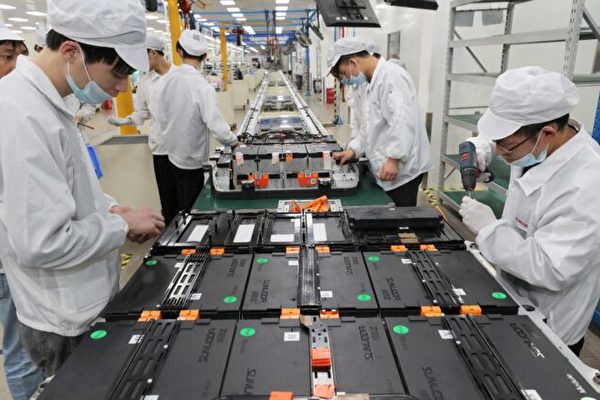Investing over $1 billion, the United States battery startup Lyten is dedicated to constructing the world’s first large-scale factory to produce lithium-sulfur batteries. This emerging technology aims to help the U.S. break its reliance on Chinese products in crucial metals needed for energy transition.
According to the Financial Times, the factory is located in Reno, Nevada, and is expected to start production in 2027. The goal is to commercialize lithium-sulfur batteries that can challenge lithium-ion batteries without relying on supply chains controlled by the Chinese Communist Party, including graphite, nickel, manganese, or cobalt.
Celina Mikolajczak, Chief Technology Officer of Lyten, told the Financial Times that the company’s battery chemistry technology provides the U.S. with an opportunity to reduce dependence on China. Lyten plans to ramp up production at the Reno factory to 10 gigawatt-hours by around 2032. The company will manufacture batteries for drones and satellites, and ultimately produce batteries with longer lifespan for electric vehicles compared to lithium-ion batteries.
Lyten’s technology replaces the traditional graphite in the anode of lithium-ion batteries with lithium metal and uses sulfur instead of nickel, manganese, cobalt, and lithium in the cathode.
“The biggest influence China (CCP) has on the electric vehicle industry and all battery manufacturers is their graphite supply,” Mikolajczak said. He added that Lyten will source sulfur domestically in the U.S. and procure lithium from American suppliers and other countries besides China.
This move by Lyten comes as U.S. battery startups strive to invent next-generation leading battery technologies to compete with China. These companies are expected to utilize materials that are easier to source, cheaper, and have higher energy density, providing greater driving ranges and faster charging times for vehicles.
Milo McBride, a researcher at the Carnegie Endowment for International Peace, describes the commercialization of lithium-sulfur batteries as the “golden goose” for U.S. battery competitiveness.
“The Western alternative critical mineral supply chain has not reached the required scale,” McBride said, noting that this technology offers the U.S. a significant geopolitical opportunity. The U.S. could fundamentally introduce a battery where, in the long run, certain minerals and their chemical components become less crucial.
With the support of multinational car manufacturers Stellantis and FedEx, Lyten has raised $425 million in funding and received a $4 million grant from the U.S. Department of Energy in January this year.
Stellantis CEO Carlos Tavares said, “Specifically, the lithium-sulfur battery from Lyten could be a key element in achieving the widespread marketization of electric vehicles globally, and their material technology can also help reduce vehicle weight, which is necessary for our industry to achieve carbon neutrality goals.”
Dan Cook, co-founder of Lyten, stated that achieving a fully domestic U.S. supply chain and manufacturing is the core strategy of Lyten, especially for its lithium-sulfur batteries. The company boasts a team of battery chemistry experts dedicated to achieving 100% domestic sourcing and manufacturing and becoming the lowest carbon-emitting electric vehicle battery in the market.
The main bottleneck faced by lithium-sulfur batteries lies in their chemical properties. While the energy density of lithium-sulfur batteries is several times higher than traditional lithium-ion batteries, they degrade rapidly due to a chemical reaction called polysulfide shuttling.
“It’s a tricky problem,” Mikolajczak told the Financial Times, referring to efforts in controlling the movement of sulfur in the battery using carbon structures to extend battery life. The company plans to apply the batteries to defense sector equipment like drones and satellites next year and improve the battery’s lifecycle for electric vehicle applications “in the coming years.”
Amid countries’ race toward green energy transition, the essentiality of lithium in electric vehicle batteries cannot be understated, with China accounting for about two-thirds of global lithium chemical production.
In recent years, relations between Western countries and China have grown increasingly tense. Nations are seeking to reduce reliance on key mineral resources from China. Apart from investing in developing new technologies, countries are looking for other sources of lithium metal supply.
According to the Wall Street Journal’s report on September 5, commodity research firm Fastmarkets predicts that eight mines in Europe are expected to start production within this decade. By 2034, these mines will increase Europe’s supply of lithium carbonate from almost zero to 58,000 tons annually.
Fastmarkets data shows that the demand for battery electric vehicles (BEV) in Europe will triple in the next decade. Currently, 97% of the lithium elements used by the EU come from China.

